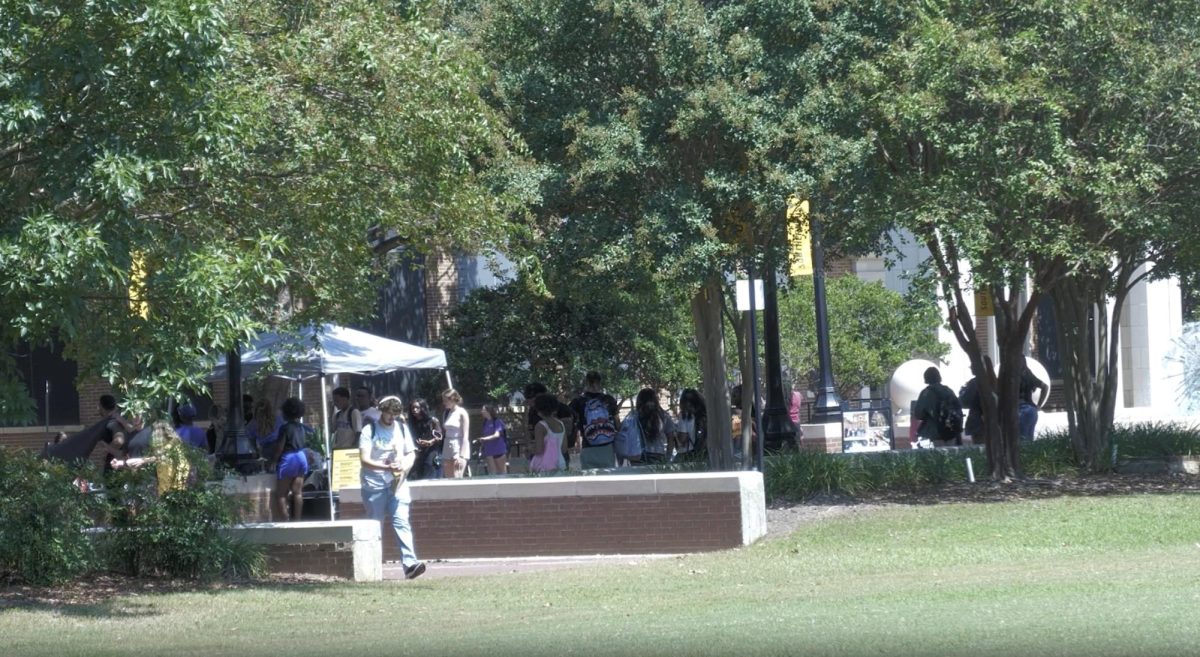Judge considers injunction against Miss. ban
JACKSON – District Court Judge Carlton Reeves heard oral arguments Wednesday to decide whether a preliminary injunction will be granted against Mississippi’s ban on same-sex marriage or if the court will choose to stay on the subject and await the court decisions of similar cases occurring
in early January.
The plaintiffs of the case are the Campaign for Southern Equality, couple Rebecca “Becky” Bickett and Andrea Sanders and couple Carla Webb and Jocelyn “Joce” Pritchett.
Defendants of the state include Gov. Phil Bryant, Attorney Gen. Jim Hood and Hinds County Circuit Clerk Barbara Dunn.
Paul, Weis, Rifkind, Wharton & Garrison LLP is the law firm representing the aforementioned plaintiffs. Roberta Kaplan, the lead counsel on the case who is also known as the lead counsel in United States v. Windsor, was first called to the stands to extend her argument to the court.
Kaplan, a dominant force in the courtroom, argued for a preliminary injunction which would allow this case to serve as the deciding case for same-sex marriage and same-sex marriage recognition in Mississippi.
Kaplan has been described by her firm as a “powerhouse corporate litigator and pressure junkie.” The New Yorker lived up to her reputation as she spoke to the court, often having to apologize to the court reporter for speaking a little too quickly.
One aspect of the case that she put much emphasis on was the fact that both couples she represents have two children. These children, according to Kaplan, do not share the same benefits as those children who come from heterosexual parents.
“The dignity and self-worth of these children (are) being demeaned,” she said.
Following Kaplan’s arguments, which were met with some questions and comments from Reeves, the state’s lead counsel, Justin Matheny, took the stand.

Matheny argued the state should wait and decide what course of action they would like to take, arguing that there are similar cases taking place in nearby states that could help the court come to a better understanding of what is best for Mississippi.
During Matheny’s argument Reeves met him with a statement regarding the decision in Loving v. Virginia, as it applies to this case. The Loving case legalized interracial marriage.
“Everything prior to Loving, people never thought people of opposite races would want to marry each other,” Reeves said. “In 2014, your children couldn’t even think that was going on back in 1967.”
Matheny countered Reeves with the argument that the Loving decision dealt with two members of opposite sexes and, therefore, they also talked about procreation. The state feels procreation is a critical aspect of traditional marriage.
To that statement, Reeves argued the state now prohibits conjugal visits for prisoners leaving them unable to procreate. He also discussed people who marry late in life, infertile couples and couples who choose not to procreate.
“Where does that take us with procreation?” Reeves said.
At the end of the day, Reeves decided he would consider ending Mississippi’s ban on same-sex marriage. Reeves has two weeks to review the case, but many are hopeful he will make his decision before then.
For more information, visit the Campaign for Southern Equality website.






























